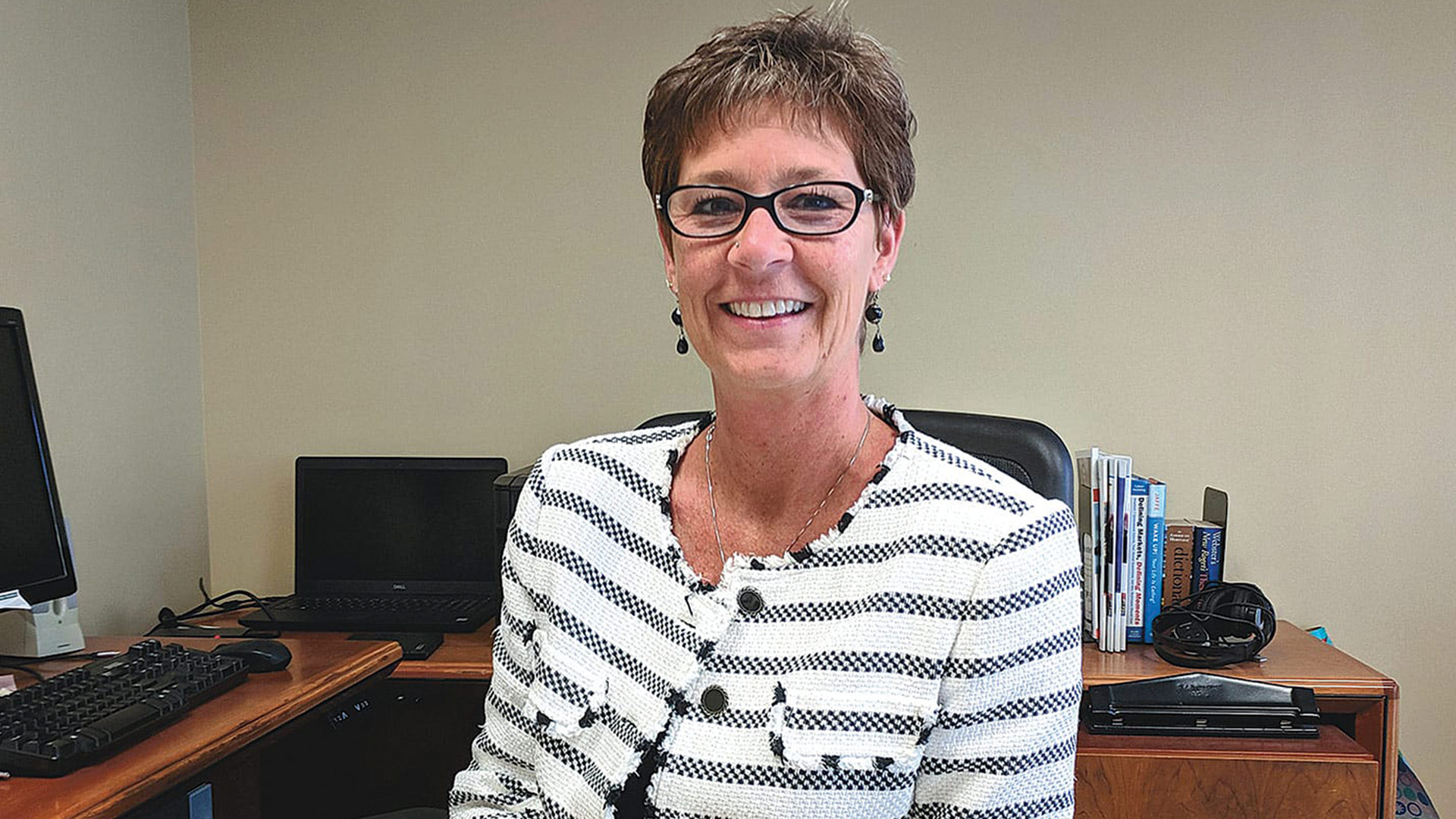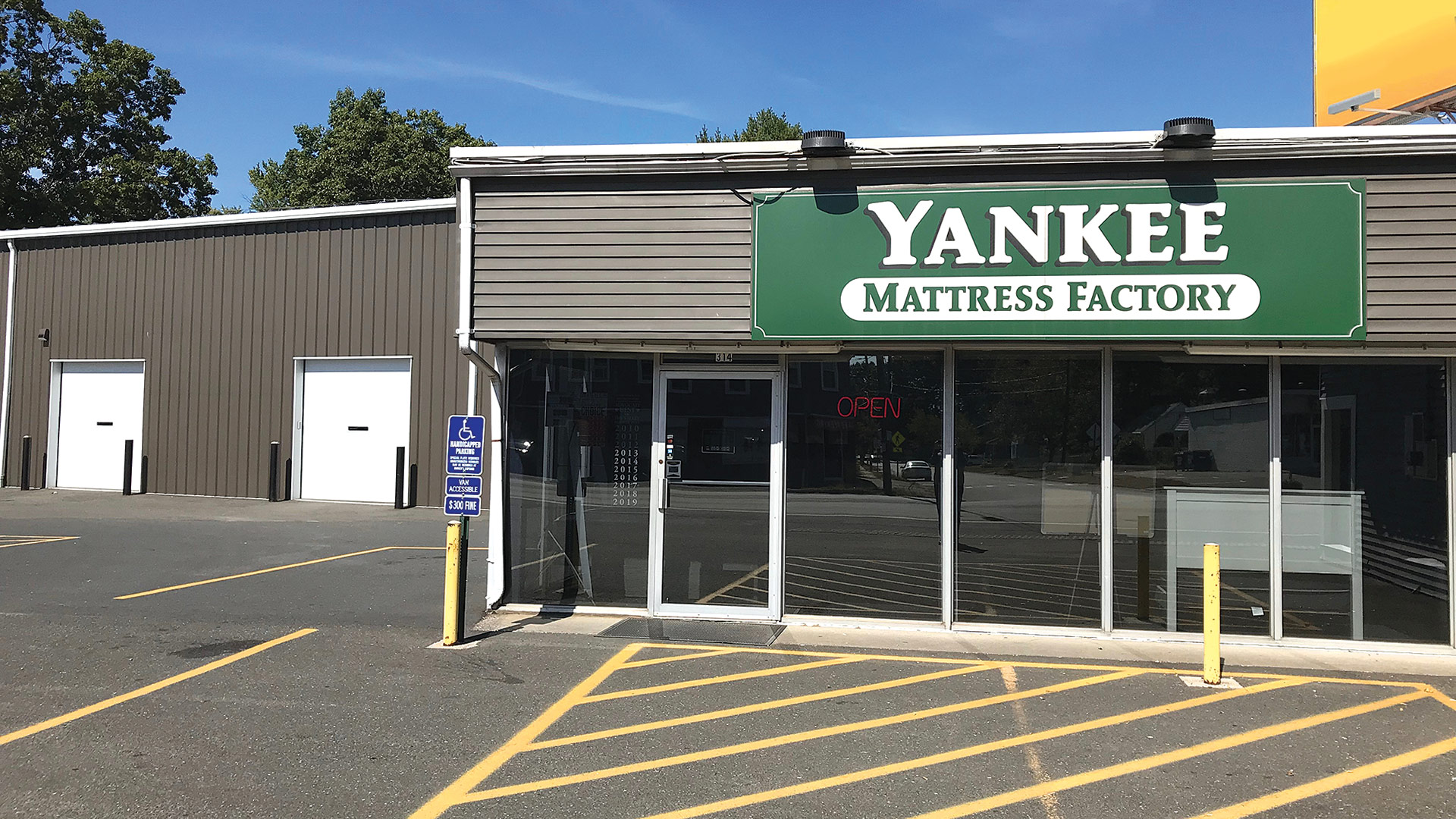Welcome Mat

At the practice she owns in Wilbraham, Excel Therapy & Conditioning, Dr. Sara Hulseberg is used to multiple physical therapists and coaches treating a host of patients each day, and for the center’s gym to be a hive of activity for members recovering from injury or improving their performance.
It’s quieter now, with a fraction of the usual patients in treatment rooms and in the gym at a time, and plenty of space between everyone.
That’s life in the capacity-limited world of doing business in the age COVID-19, but Hulseberg has rolled with the punches because … what choice does she have?
“With the way things are going for some of my friends who have closed down, I’m thrilled we’re still open,” she told BusinessWest. “I’ve had to take advantage of PPP loans and disaster-relief loans in order to make sure we can stay open, but we are still able to serve our patients and clients, and they’re excited to be coming in.”
That said, she added, it’s difficult to make a profit in survival mode, when the first priority is keeping the doors open and keeping employees paid.
“Those are small victories, and it’s a testament to the fact that we’re doing something right, because people feel safe coming in for group classes. In so many places, group classes have all but disappeared. I’ll take the small victories, and hopefully, we’ll find a way to combat this season and actually start making money again. The goal is to serve people, but it would be nice to make money while doing it.”
On the other hand, Nick Noblit, general manager of Yankee Mattress in Agawam, hasn’t struggled too badly with the past eight months of forced 25% capacity, because that capacity isn’t too onerous in a store with more floor space per customer than most.
“With the way things are going for some of my friends who have closed down, I’m thrilled we’re still open. I’ve had to take advantage of PPP loans and disaster-relief loans in order to make sure we can stay open, but we are still able to serve our patients and clients, and they’re excited to be coming in.”
He did feel the weight of the restrictions during the state’s tax-free holiday back in August — when the store typically does about two months of business in one weekend.
“At that point, we were still at minimum capacity, and we did have to have a greeter at the door monitoring how many people were in the store at one time. We had some folks waiting outside or in their cars, and we had water for them.”
Still, Noblit added, “it wasn’t a huge issue for us, to be honest. I can imagine a retail store that sees a lot more foot traffic, like a small grocery store or a small drugstore — they’re more affected.”
No matter to what extent each business is affected by capacity limits, they collectively cheered Gov. Charlie Baker’s raising of those limits from 25% to 40% on Feb. 8.
For many operations just trying to survive, every bit helps, especially when they’ve not only followed state mandates for keeping their workplaces safe, but in many ways gone above and beyond, said Nancy Creed, president of the Springfield Regional Chamber.

Nancy Creed says businesses have become adept at pivoting and dealing with state mandates, but some, like restaurants, have been especially challenged economically.
“I have to give our business community a lot of credit because when sector-specific protocols came out, and everyone needed to sanitize all these things to keep people safe, they stepped up to the plate, and did that at a lot of expense to themselves. They deserve a lot of credit.
“I really think it’s a testament to our community that the business community said, ‘we want to be part of the solution and not part of the problem,’” she added. “I give them a lot of credit because they could have thrown in the towel if they wanted to.”
Raising capacity limits isn’t a cure-all to businesses’ struggles, of course, especially when the governor has moved in both directions in the past year, loosening restrictions only to tighten them again. But it’s a start.
Traffic Report
Businesses affected by the capacity change include restaurants, arcades and recreational businesses, driving and flight schools, gyms and health clubs, libraries, museums, retail stores, offices, places of worship, and movie theaters, to name a few. Workers and staff do not count toward the occupancy count for restaurants and close-contact personal services.
“Clearly, the restaurant industry has been the most impacted,” Creed said. “With other business sectors and office workers, it’s easier for them to reduce their capacity limits because they can work remotely. And small restaurants have struggled the most — when you have six or eight tables to begin with, it’s not worth doing in-person dining if you have to scale down to one or two tables.”
While some sectors are struggling more than others, she added, most members she’s heard from understand the reasons for the state’s mandates, even when they feel they’re too strict.
“I’m not hearing people complain as much; I think they’re now used to it and able to figure out what to do. I’m hearing a lot of stories of restaurants that are doing well with takeout, which helps make up for the low capacity, but it’s still not easy.”
The same goes for outdoor dining — like takeout, a feature many restaurants either launched or vastly expanded out of necessity, but plan to stick with post-pandemic.
“A lot of places will continue with that because they can expand their capacity with outdoor dining and had such success with it,” Creed said. “Customers are telling them, ‘we’ve always wanted outdoor dining, and we hope you keep it.’”
Yankee Mattress saw intriguing changes in customer behavior as well.
“The number of people who don’t want to stop in, we made up for over the phones,” Noblit said, noting that 2020 was a strong year for online sales as well. “Because of the shutdown, we were closed almost three months, and during that period of time, the only way you could get a mattress was online.”

Nick Noblit says he’s had to manage overflow lines rarely during the pandemic, most notably during tax-free weekend in August.
Even after stores were allowed to open later that spring, many customers continued to use the online option, which was a bit surprising, he added. “This is definitely an item, I believe, you should try before, so you know what’s comfortable for you. But it was a sign that our customers in this area took the pandemic very seriously and are taking precautions, and if that meant calling over the phone and making decisions based on our products and our name, that’s OK too.”
While companies have rolled with the capacity changes, and, as noted, honed new ways to do business in the long term, what they don’t like is sudden change, like what happened in Amherst and Hadley last week.
On Feb. 8 — the morning the 40% capacity change went into effect statewide — the Amherst Board of Health issued an emergency order that will continue the 25% limit in town, as well as an early-closing order, due to an outbreak of COVID-19 on the UMass Amherst campus that, at press time, had risen to 540 cases. The town of Hadley followed, also keeping capacity levels at 25%.
“This is not the direction that we, as a town, nor our businesses, want to go, but it is imperative that the town take decisive action immediately to address this increase in cases,” Amherst Town Manager Paul Bockelman said.
Claudia Pazmany, executive director of the Amherst Area Chamber of Commerce, which has members in both towns, said some businesses chose to close completely for two weeks, either for safety or because UMass students are quarantined to their rooms for the time being, cutting off a supply of customers and, in many cases, employees.
“They’re crushed. They were finally opening at 40%,” Pazmany said, adding that some businesses consider the move unfair, especially the ones that have a strong track record in safety, sanitization, and keeping exposure down over the past year.
“As a chamber, we’re so concerned for everyone’s safety, and a lot of businesses are choosing to close temporarily for the safety of their staff,” she added. “Personally, I don’t want to see anyone struggling, but we want to keep the safety of businesses and the community paramount. It’s tricky; it’s such a layered issue.”
Even as the extension order went down, Amherst Public Health Director Emma Dragon emphasized that “it is in the interest of the health of our entire community that we continue the restrictions that are currently in place. Never has it been more important to follow those key public-health protocols of wearing a mask, washing hands, and maintaining social distance.”
Doing Their Part
Mention those tips to many business owners, and they’ll say they’ve been insisting on all that — and much more — from the beginning. “The biggest thing, early on, was the uncertainty, not knowing how the surge was going to affect us,” said Dr. K. Francis Lee, owner of Advanced Vein Care Center in Springfield.
But there are lessons, he says, in how his office responded to the pandemic — and continue to respond — that apply to many places of business. The first was making sure employees understood safety protocols and the importance of keeping themselves out of harm’s way.
“We immediately talked to our staff about their concerns, and our staff came to understand that this pandemic was real, and something that affects everyone’s bottom line — not just the business bottom line, but each person’s bottom line,” he said. “Our people took this very seriously, and everyone knew they had to behave in a way that minimized exposure and minimized transmission, to not bring it into the office and spread it amongst each other.”
The second step was communicating with patients, who were screened twice by phone before appointments — with questions about possible COVID exposure — and then again on the day of the appointment. If there was any doubt, patients were rescheduled or moved to telehealth visits.
 “This is something that hits close to home for each individual; at the end of the day, it’s all about their jobs and our business functioning, and people are responsible for doing their part.”
“This is something that hits close to home for each individual; at the end of the day, it’s all about their jobs and our business functioning, and people are responsible for doing their part.”
Finally, Lee put in physical safeguards in the office, from PPE — he collected so much, he was able to donate 1,000 facemasks to Baystate Health last April — to installing 22 HEPA-filter air purifiers, at least one for every room. “We have a 50-page COVID safety protocol,” he added.
For customers who visit Yankee Mattress, Noblit said, the store is completely sanitized multiple times a day, with attention paid to common touch points like door handles and surfaces, while customers are given a sanitary sheet — he calls it a ‘comfort test guard’ — to lay on as they try various mattresses. Plastic barriers also went up at counters to separate customers from staff.
“We wanted customers to feel safe and come in and do what they needed to do, and not have to worry about any issues with that,” he noted.
Making people feel confident to go about their business should be a community-wide effort, Lee suggested.
“It comes down to normalizing people’s behavior. That involves dealing with the COVID virus itself, which involves paying a lot of attention to science, and that’s what we did in the first place. We started inside people’s heads — we helped our people understand that this is real, and if people screw up, the whole office could shut down. But we never had to shut down — except for April and May, when everyone was shut down.
“Everyone understood this was their own job security at stake,” he continued. “Major workplaces have been shut down because of this. This is something that hits close to home for each individual; at the end of the day, it’s all about their jobs and our business functioning, and people are responsible for doing their part.”
For just about every customer-facing business, there’s a balance to strike between commerce and safety. Because Excel isn’t just a gym, but a full therapy practice, Hulseberg doesn’t have to maintain a laser focus on gym membership. “Our gym, at its core, is a love note to our patients,” she said. “We tend to run our gym differently than the big chain conglomerates, so the limits have hurt us less.”
Specifically, during the past several months of 25% capacity, she sold memberships only up to that level.
“I don’t want people buying memberships and then finding it too occupied or they don’t feel safe,” she said, adding that she implemented a timed appointment platform online, but members can also call last minute to check on availability. “It gives everyone peace of mind that we’re here for a massage or a group class, but everything has a cap on it, and we have safety requirements in mind.”
Winds of Change
In fact, even though the state has raised the capacity limit to 40%, Hulseberg is keeping it at 25% — for now.
“We’ve had a year’s experience with this,” she said. “We’re going to wait to implement any of their changes because they tend to roll back on us, and we end up spending time and money implementing new changes, just to have them roll back in a week or two.”
Besides, she said, she doesn’t want to be part of the problem that leads to a spike — although gyms and wellness practices, by and large, have not been identified as viral-spread locations. “We’re just happy we’re hanging on thus far and people are enthusiastic about what we’re doing, so we don’t have to close our doors.”
The worry that loosened restrictions can just as easily be re-tightened is common to most businesses, Pazmany said.
“The one guarantee this year is that whatever we’re dealing with today will change tomorrow,” she said, and that reality has worn on business owners, especially those in Amherst and Hadley, who can’t seem to catch a break right now — and who continue to remind customers that they’re still open for business.
“They are exhausted,” she added. “They’ve implemented safety protocols, they’ve kept everyone safe, they’re building confidence because they want everyone back. They’ve proven you can trust them, and trust is everything to a small business. So they were excited to expand to 40%. I can tell you, if this is prolonged, it could mean more closures. They need to get to 40%.”
It’s a reminder that all these numbers — case counts, capacity limits, profit-and-loss statements — add up to something significant for a regional business community that’s just trying to get back to normal … or, whatever capacity level passes for normal these days.
Joseph Bednar can be reached at [email protected]









 “This is something that hits close to home for each individual; at the end of the day, it’s all about their jobs and our business functioning, and people are responsible for doing their part.”
“This is something that hits close to home for each individual; at the end of the day, it’s all about their jobs and our business functioning, and people are responsible for doing their part.”

